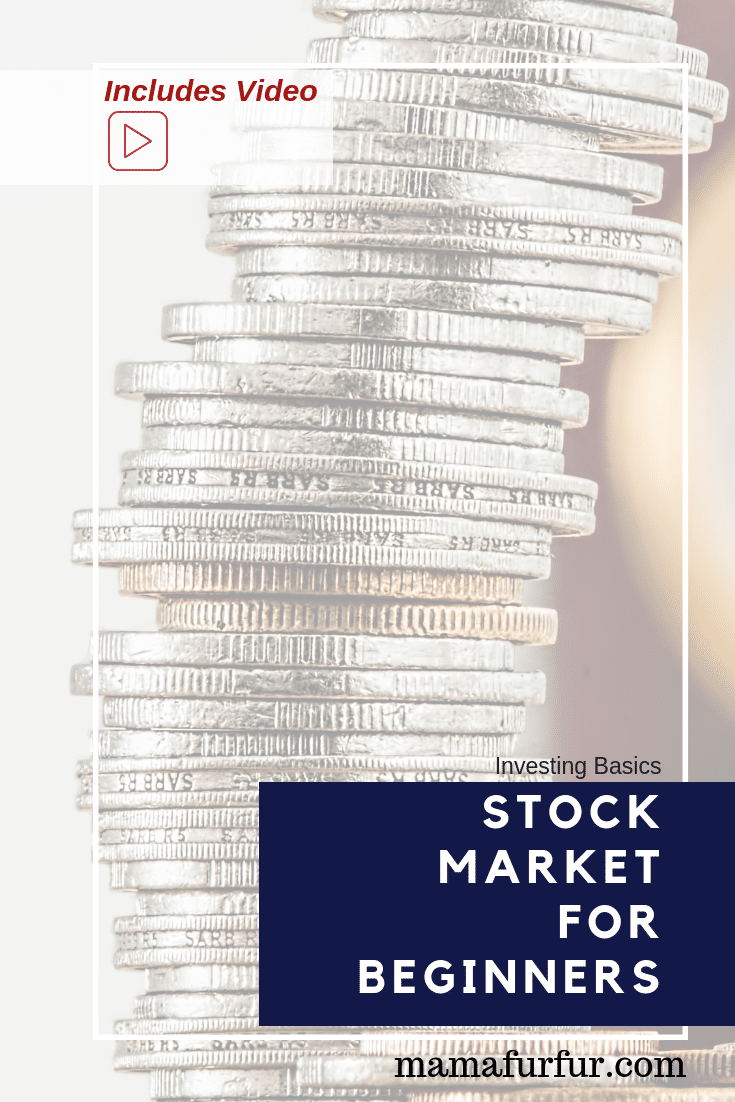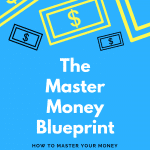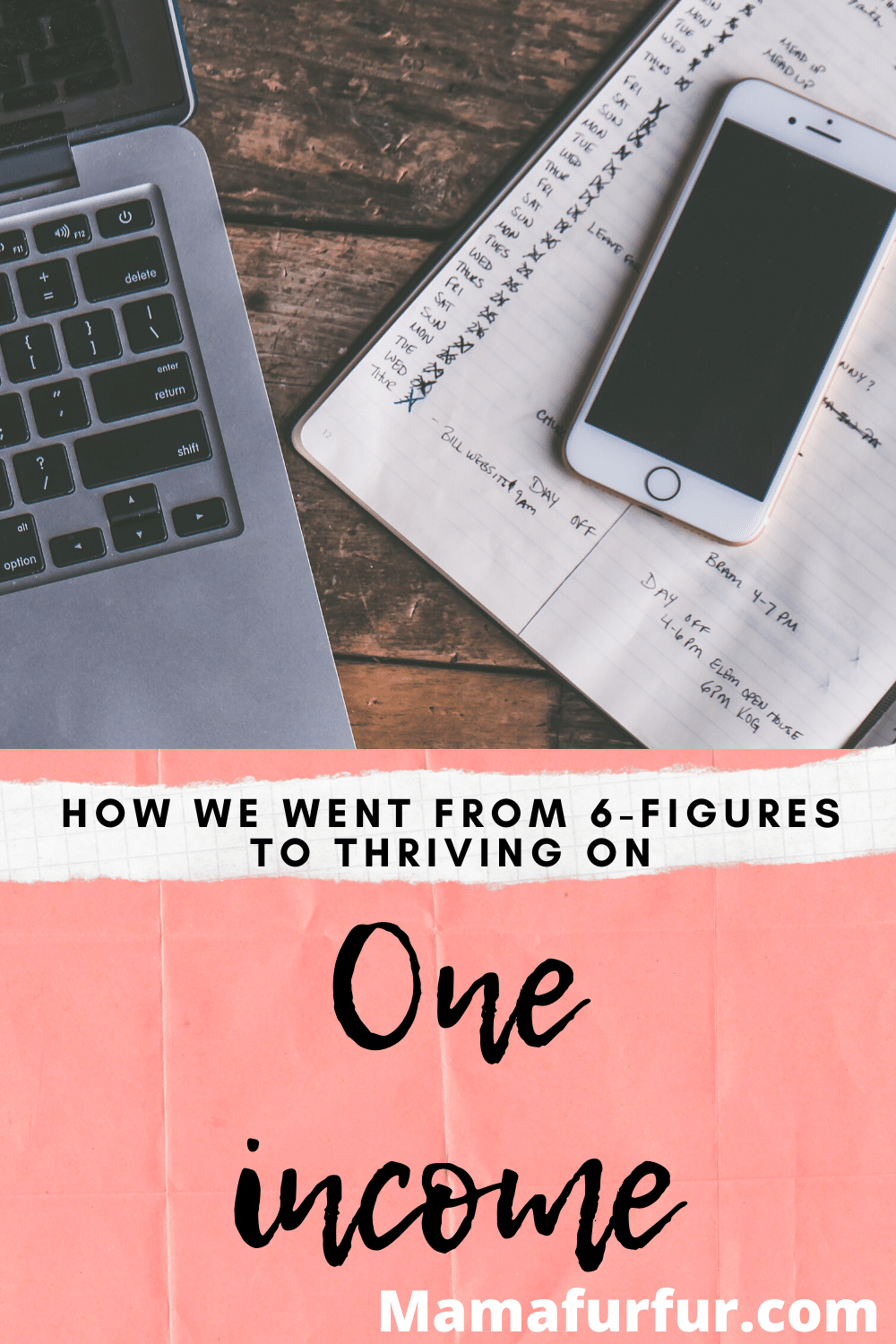I believe absolutely any budget and any household can achieve financial and time freedom, giving you back your time completely to spend it exactly how you wish and live your dream life.
It really is only a game of math rather than the quantity of money you have available.
All it requires is knowing and applying a few simple principles for your money, and that will happen with consistent effort.
// How do you feel about Investing your money right now?
Often when I say I invest in the stock market, as a normal working mother, I get the same few responses.
It is “too scary”, or “you could lose it all“, or “it’s too complicated and only for wealthy people to understand”.
I’m here to show you everything you need to know to make informed choices with your money, and why absolutely everyone can and should use the stock market to grow their wealth.
If the most successful people in the world invest, there might just be something in it!
// Investing – the basics
I will go into outline detail of the fundamental language you will hear around the Stock market and investing in it.
Essentially, when you will use a Platform, whether that is an investment company or Pension through an investment company, where you deposit your money that is then used to purchase individual stocks, funds, bonds or hold the cash for you.
The type of investment you purchase with your deposited money will ultimately then return back further profit, interest, or make a decrease based on the asset you choose.
With any investment, this is NOT a short term quick money scheme.
You need to invest your money for the long term in whatever method you choose and ideally 5+yrs to allow for the natural dips and increases to smooth out your growth over time.
Most people invest and sell using their emotions – they sell when low and purchase when high – we need to detach ourselves as much as possible from any current trend reports and trust that the markets will continue to increase overall as they have for 100+yrs as an average.
// What are Stocks and what are the different ways to purchase them?
On the basis level, a Stock is a piece of a company you own for example you wish to purchase a part of Coke Cola or Exxon Mobil.
When the company is doing well, providing an increase in revenue and margin and more profits, the value of that share to buy it that day will go up, making the value of your original share increase and be worth more than you paid for it.
Thus you see an “interest” increase on your stock item if you were to sell it that day.
The opposite is true too – if the company doesn’t do so well and the stock price decreases, you may hold stocks that are worth less than you paid for them if you were to sell them that day.
Companies are grouped overall by their size and revenue generally, and then by geographical location and the type of product they sell.
The Lowest risk of stock price dropping sits generally with the Developed country largest companies who have long history of profits; where as Developing country company based in India, Russia for example would be seen as riskier stocks with potential greater fluctuations in profits and demand for products.
When we invest and purchase a stock in a company, we also have the potential to receive a part of their profit share each year or every few months.
This is called a Dividend, and ideally we would reinvest that back into the company again to keep our growth going.
Over a long time, stocks offer most return on your initial investment due to companies naturally wanting to drive sales and be successful every year.
// What are Funds and how are they separated?
Stocks can be purchased individually, but it also makes more sense to purchase groups of stocks together.
Purchasing stocks in a group and spreading your risk across many companies is the ideal way to reduce risk and reduce potential declines in your investment.
When we group stocks together to purchase as a “one set” this is called a Fund.
We can also have passive or active investments depending on the interaction required to maintain our growth in the investment.
Passive is where there is no management of the stock; Active is where we have a manager or ourselves maintaining the balance and decision over our growth of our investment.
I would strongly advise when you are new to investing to choose Active investments where you can, to make it easier for you in the beginning.
INDEX FUND – PASSIVE INVESTING
An Index fund is a collection of stocks that are grouped due to their stature within a region or product.
Usually they will track the top performing list of companies only.
For example, the S&P 500 index fund, will track the top performing US companies only at that time and the companies within it can move in and out of the fund at any point.
The Fund has it’s value assigned to it once a day, trading to purchase or sell only happens once based on the day’s stock market performance.
Index funds are ideal for novice investors as they are usually the cheapest in terms of charges, due to no Investment manager required – it automatically tracks the top performing companies for you without anyone having to manually do that each day.
For example, the S&P 500 has returned an average of 9.8% yearly growth for the past 80 years alone – and this includes the years when we had the Great Depression and Market Crash.
This is average of course rather than constant year on year growth, but with that level of growth in US developed countries profits – there should be no need to fear investing.
MUTUAL FUNDS – ACTIVE INVESTING
A mutual fund is managed by a Fund manager for you, but usually contains a selection of Index funds, general funds and Bonds grouped under one for you.
You will pay a slightly higher charge for investing in this fund due to needing someone to actively look for better companies and funds for you, to keep a good level of return on your investment.
Your selection of a mutual fund should be based on the selection within it, do your research, but also the length you wish to leave it untouched to grow and your personal needs for the investment back and goals for the wealth such as Financial freedom income generating for example.
For example, I use Vanguard (Investment company Platform) Life-strategy 100 for my own investments mainly.
This fund is a mutual fund consisting of a range of index funds from around the world, and the S&P 500, made up entirely of 100% stocks and shares in companies.
I choose this fund as the return is consistent, my risk level is very tolerant as I have 10+yrs before I plan to use the money from within it for living and withdrawing it (so can overlook any dips that might happen soon) and allows me access to my money within 1-2 days when I choose to sell parts of the fund off.
I plan to keep this fund and invest further into it until I retire and then move down to more of a 80% or 60% stock mix with bonds once I hit my financial freedom exact number in savings, and then the money will increase at a slower rate but less fluctuation likely year on year.
You can find out how to work on your Exact FINANCIAL FREEDOM NUMBER to use as a Goal Value here
As always, before you invest in any index or mutual fund, research the available data sheets on what funds are contained within your planned purchase to ensure you are happy with the risk potential and blend of funds selected.
// What are Bonds?
Bonds are like loan between a company or country and represents a debt with fixed number of years to repay at a fixed interest rate.
When you sell a bond, you promise to repay the buyer when they wish their money back.
If the interest rates go down after you buy a bond, the bond value goes up and vice versa.
Typically in the UK for example, you can purchase Premium Bonds as a consumer which guarantee you the same cash value when you cash them in (for example you purchase £50 of bonds and then in 10 years when you cash it in you get £50 back).
Bonds offer little or no return on your investment usually as the value of the cash will no doubt have risen during the time you kept the bond without cashing out.
For example, £50 might have got you a full month’s shopping back in the 1980s but currently it will only get you potentially one week’s shopping now in comparison.
Usually “interest” from a bond is in the way of a lottery, where each bond you hold could potentially win you a small amount of money if picked each month.
The longer you hold the bond, the longer the risk of your bond being worth less than you paid for it in relative buying power post sale.
// Cash – and why it is NOT an investment
By default we believe that having cash in a normal savings account might be seen as the safest option, but it is not the best use of your money.
On average you might receive 0.02-0.05% return each year on your investment, which will not keep up with the cost of living increase of around 2% inflation each year.
That effectively means your money is losing buying power each year you leave it there untouched.
Personally, outside of having emergency fund money in an easy access account, we need to look at using our money to make more money to really define our financial security independent of anyone else.
// How do we maximize our profits?
Modern Portfolio Theory is the practice of spreading the risk and reward of any investment, and spreading investment over a range of companies to limit any potential losses and called Diversification.
Ideally we want to buy our stocks low and sell when they are high; and the whole stock market globally will go up when we balance this efficiency balance of our choices.
That means making sure we don’t “have all our eggs in one basket” and analyse our choices regularly, or allow someone else to do it for you using a Mutual fund.
Ideally we would want only 5% of our total investments in individual companies, if you wish to choose that route, and 1% in Cash.
This would allow our portfolio’s to remain balanced using the overall market for our growth rather than one company and the risk nature of that.
// Warren Buffett’s top tips for New Investors
Waffen Buffett is seen as the God Father of modern investing, and his own company Vanguard currently manages the largest amount of wealth in the world, roughly $4trillion in total.
His advice is simple to investors new and old:
- Invest in yourself first through knowledge. Find out as much as you can about anything you invest your time and money in before you sign on the dotted line. Read every book and article you can so you are confident in your choices for life.
- Cash is a bad investment. Good businesses make more money than cash ever will, and return it back to you as they are successful.
- Invest in Income-producing assets such as low-cost Index funds such as the S&P 500 so that you can make money whilst you sleep.
- If you want to invest in an individual company, research their Profit and Loss sheets and figure out how much they are worth and then how much the current share price is. If the difference is great between company value to share price, snap it up!
- Invest in things you understand only. That includes people.
// What do I do next?
Now we have covered the basics, it really is time to put them into action and apply them.
Personally, in the UK, I think there is no easier or simpler way to invest than through an Investment ISA (Individual Savings Account) which allows up to £20k per person to be saved tax free.
You can even work out the exact amount of money you need in investments, that give you at least 4% year on year growth, that would mean you could live completely off the interest received each year and indefinitely.
This is a simple calculation and I show you it right here:
You can also find out more about using Investment ISA or starting your Investment journey here:











